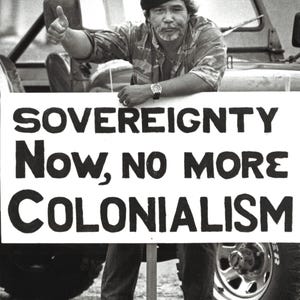The decision of whether or not a non-Chamorro man will be eligible to vote in the island's self-determination plebiscite is in the hands of District Court of Guam Chief Judge Frances Tydingco-Gatewood following arguments yesterday in her courtroom.
Attorney Christian Adams, representing Arnold “Dave” Davis, argued against Julian Aguon, special assistant attorney general, who was representing the government of Guam.
Davis in 2011 filed a complaint against the government after he was not allowed to register to participate in the proposed plebiscite, which has not been scheduled. Under Guam law, the nonbinding plebiscite limits participation to native inhabitants, defined as people “who became U.S. citizens by virtue of the authority and enactment of the 1950 Organic Act of Guam and descendants of those persons.” Eligible voters will choose between statehood, free association or independence as their preferred relationship to the U.S.
His case was dismissed after the court ruled Davis did not suffer any harm because there has been no plebiscite. Davis won an appeal, and the appeals court sent the case back to Guam for further consideration.
Both Davis and the government filed motions asking the court to rule in their favor. The motions were argued extensively during Thursday’s near six-hour court hearing. The courtroom was filled with members of Independence for Guahan Task Force, the Commission on Decolonization, Guam Election Commission members and staff and several lawmakers.
Tydingco-Gatewood said Thursday afternoon she would take the issue under advisement and issue a written order shortly.
Because Davis was not allowed to register for the plebiscite as he was not a “native inhabitant,” Adams argued the government violated the 14th Amendment, the 15th Amendment and the Voting Rights Act.
Adams argued Davis was discriminated against and that the vote for the plebiscite should be open to all voters, not just those who are native inhabitants.
“Davis simply wants to have his voice heard,” Adams said.
Adams repeated that “ancestry equals race" and because the definition of native inhabitants includes "descendants" of those who became U.S. citizens in the Organic Act, it excludes those who are not Chamorro. Adams also said someone who was adopted by a family who fits the native inhabitant definition would be excluded from participating in the plebiscite.
There are less-restrictive means to determine the status preference of native inhabitants, Adams said. He suggested taking a poll, asking if all those polled are native inhabitants and whether they agree with statehood, independence or free association. This would also be less costly, he added.
Local law states that the GEC is to conduct a plebiscite for registered voters to choose among the three political status options. The results of the plebiscite will be transmitted to Congress, but the results are not binding.
Aguon brought up this point several times Thursday and said the transmission of the plebiscite results does not mean anything.
Aguon also argued that definition of native inhabitant was racially neutral and the does not restrict the voter pool to only Chamorros.
He also said the plebiscite was not a vote and is a “purely symbolic exercise” beyond the reach of the 15th Amendment or the Voting Rights Act. The plebiscite is for a “federally created class of persons,” Aguon said.
Following the hearing, GEC commissioner Joaquin Perez, said he felt Aguon’s arguments were spot on. “This particular plebiscite doesn’t bind Congress, it doesn’t bind anybody. It just expresses the views of the people of this island,” Perez said.
Adams said his argument is that voting should be open to all people, regardless of ancestry.
The judge may side with either party or deny both motions for summary judgement. If she does deny both motions, the case will go to trial, according to Kenneth Orcutt, deputy attorney general.


No comments:
Post a Comment